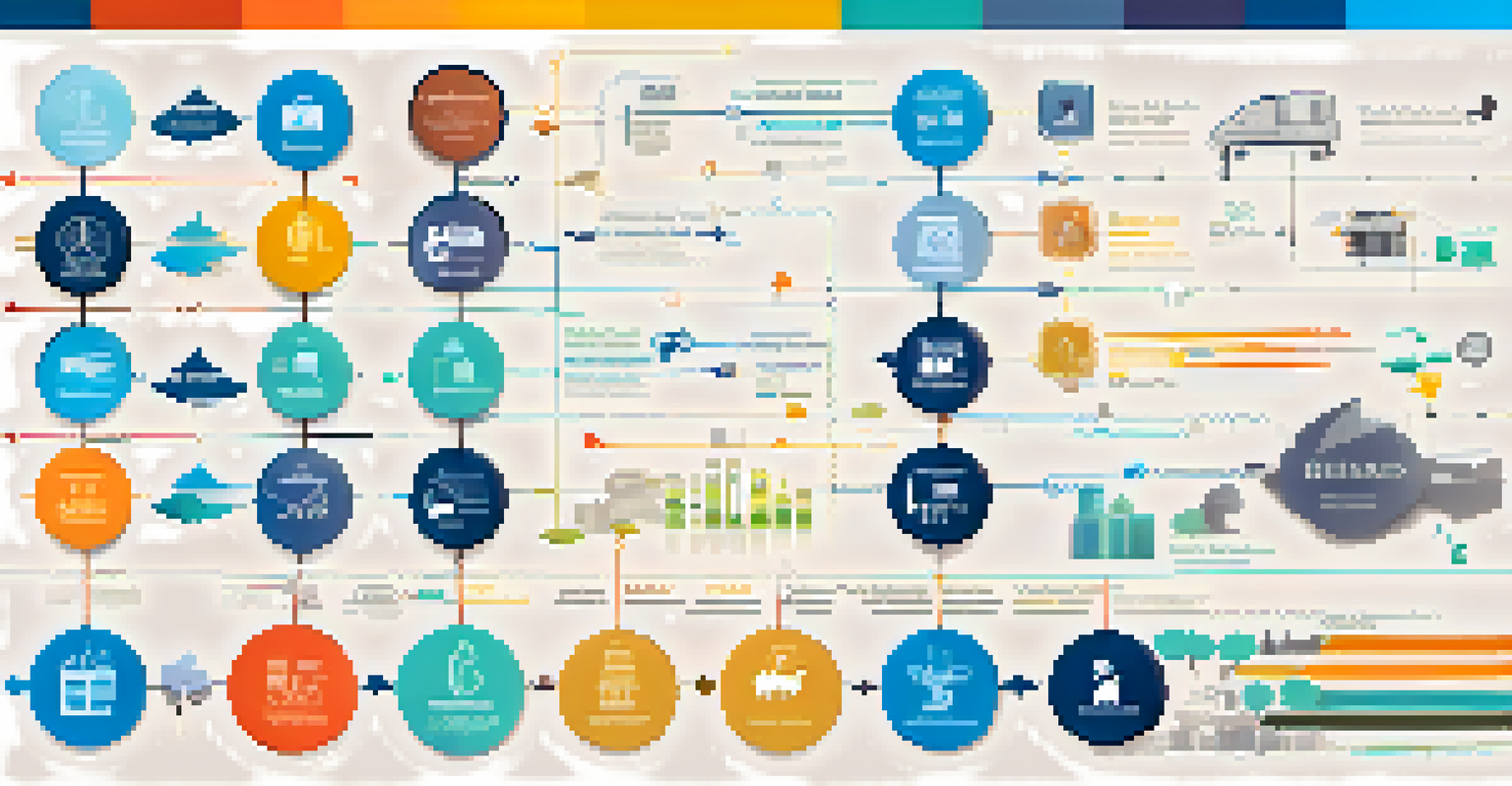Utilizing Online Resources for Career Path Decisions

Understanding the Importance of Career Path Decisions
Choosing a career path is one of the most significant decisions you'll make in your life. It shapes not just your professional future but also your daily happiness and fulfillment. With the world of work constantly evolving, understanding your options becomes crucial, and this is where online resources come into play.
The only way to do great work is to love what you do.
Online platforms offer a wealth of information about various careers, from job descriptions to salary expectations and growth opportunities. By utilizing these resources, you can gain insights that help you align your skills and interests with potential job roles. This alignment is key to making a decision that feels right for you.
Moreover, the accessibility of information online allows you to explore career paths at your own pace. Whether you're a recent graduate or looking to switch careers, these resources empower you to gather the knowledge you need without pressure.
Exploring Career Assessment Tools Available Online
Career assessment tools are fantastic online resources designed to help you identify your strengths and preferences. These tools typically include quizzes and questionnaires that can reveal your personality traits, skills, and values in relation to various career options. This self-discovery process can clarify your thoughts and guide your decision-making.

Many websites offer free or low-cost assessments that can provide you with a list of potential career paths tailored to your profile. For example, the Myers-Briggs Type Indicator (MBTI) or the Strong Interest Inventory can highlight careers that might suit you best based on your responses. This can be a game-changer for someone unsure of where to begin.
Career Choices Shape Your Future
Choosing the right career path is crucial for long-term happiness and fulfillment.
Remember, while these tools can offer valuable insights, they are just one piece of the puzzle. Combining these results with personal reflection and research will lead to a more comprehensive understanding of your career options.
Leveraging Online Courses for Skill Development
Online courses are a treasure trove for anyone looking to enhance their skills or pivot to a new career. Platforms like Coursera or Udemy provide courses on a wide range of topics, from technical skills like coding to soft skills like communication. This flexibility allows you to learn at your own pace, making skill development both accessible and manageable.
Your career is like a garden. It can hold an array of life’s beauty if you tend to it.
Investing time in online learning not only boosts your resume but also gives you a taste of what a particular field involves. For example, taking a short course in digital marketing can help you determine whether it's a path you’d like to pursue further. The hands-on experience you gain can be invaluable in making informed decisions.
Additionally, many online courses offer certificates upon completion, which can enhance your employability. Potential employers often value continuous learning and adaptability, so showcasing these skills can set you apart in a competitive job market.
Utilizing Professional Networking Sites for Insights
Professional networking sites like LinkedIn are excellent resources for gaining insights into various careers. By connecting with industry professionals, you can learn about their career paths, daily responsibilities, and the skills necessary to succeed in their roles. These firsthand accounts can provide clarity on what to expect from a particular career.
Engaging with online communities and forums can also offer support and advice as you navigate your career path decisions. You might find mentors who can guide you or peers who share similar experiences, creating a valuable support network. Networking online can often lead to opportunities that you might not discover through traditional means.
Online Tools Aid Career Exploration
Utilizing online assessments and courses can help identify strengths and develop necessary skills.
Moreover, following industry leaders and participating in discussions can keep you updated on trends and changes within your field of interest. This ongoing learning is crucial to staying relevant in today's fast-paced job market.
Researching Job Markets and Industry Trends Online
Understanding job markets and industry trends is essential for making informed career choices. Online resources like the Bureau of Labor Statistics or industry-specific reports provide valuable data on job growth, salary ranges, and the skills in demand. This knowledge can help you identify which careers are thriving and which ones may be declining.
By keeping your finger on the pulse of industry trends, you can tailor your career path to align with future opportunities. For instance, if you notice a growing demand for data analysts, you might consider acquiring the necessary skills to enter that field. This proactive approach can significantly enhance your career prospects.
Additionally, platforms like Glassdoor allow you to read company reviews and salary reports, giving you a glimpse into the work environment and expectations. This can help you ensure that your chosen career aligns with your personal values and lifestyle.
The Role of Social Media in Career Exploration
Social media platforms are not just for connecting with friends; they can also serve as powerful tools for exploring career options. Websites like Twitter and Instagram often feature industry leaders sharing insights, tips, and trends that can inform your career path decisions. Following the right accounts can provide a continuous stream of valuable information.
Moreover, many companies use social media to showcase their work culture and job openings, giving you an inside look at potential employers. This visibility can help you determine which organizations align with your values and professional goals. Engaging with these platforms can also lead to networking opportunities.
Networking Enhances Career Insights
Professional networking sites and social media provide valuable insights and connections in your field of interest.
Remember, while social media can provide a wealth of information, it’s essential to verify the credibility of the sources you follow. Striking a balance between social media insights and traditional research methods will give you a well-rounded perspective on your career options.
Making the Most of Online Resources with a Plan
To effectively utilize online resources for your career path decisions, it’s important to create a structured plan. Start by identifying your interests, strengths, and weaknesses, then outline what you hope to achieve from your research. This clarity will help you focus on the most relevant resources and avoid feeling overwhelmed.
Next, set aside dedicated time each week to explore different avenues, whether it’s taking an online course, reaching out to professionals on LinkedIn, or reading industry reports. Treat this like a part-time job – the more effort you put in, the more rewarding the outcome will be. Consistency is key.

Finally, don’t hesitate to revisit and revise your plan as you gather new information and insights. Career paths are rarely linear, and being adaptable will serve you well. Embrace the journey of exploration, and remember that every step you take brings you closer to a fulfilling career.